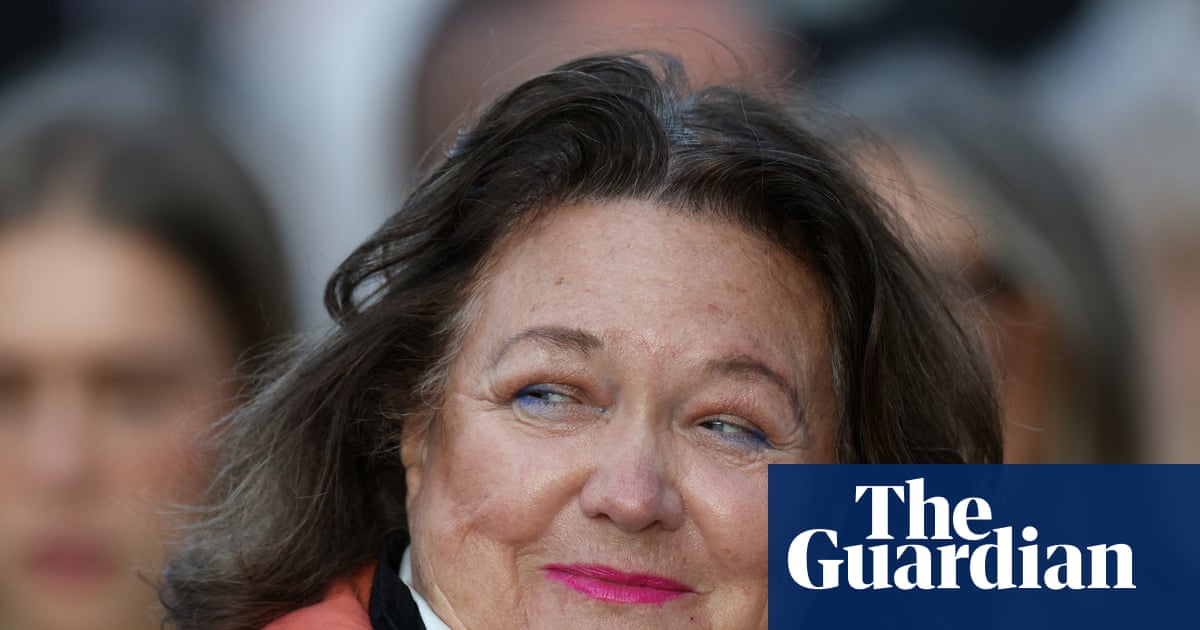
A thinktank known for its rejection of the climate crisis and a conservation group that has opposed renewable energy projects refused to identify their funders during a fiery Senate inquiry into climate and energy misinformation on Wednesday.
Chair of the committee, Greens senator Peter Whish-Wilson, asked Rainforest Reserves Australia’s vice-president, Steven Nowakowski, who had funded nine full-page newspaper advertisements promoting an open letter attacking a shift to renewable energy and promoting nuclear.
Nowakowski said they were paid for by donations, some coming from the signatories of the letter, but would not name them.
Sign up: AU Breaking News email
RRA was also asked who had paid for legal action it took this year to challenge a federal approval of the Gawara Baya windfarm in north Queensland.
Michael Seebeck, a member of RRA, said the legal proceedings were covered by “an anonymous private individual” but Nowakowski added that person was not linked to fossil fuel interests or nuclear.
The charity has become a prominent voice among conservatives and some media for its opposition to renewable energy, with claims including that large numbers of wind and solar projects are destroying habitat.
RRA also defended its use of AI to generate more than 100 submissions on renewable energy and projects after the Guardian reported citations to nonexistent scientific articles, a nonexistent windfarm and nonexistent public authorities.
Referring to a submission about the proposed Moonlight Range Wind Farm which was later refused by the Queensland government, Labor senator Michelle Ananda-Rajah said: “Seven of the 15 references you cite in opposition to this windfarm appear to be completely fabricated.”
One of those references was a 2018 report on contamination at the Oakey Windfarm published by the Environmental Protection Agency in 2018. There is no windfarm in Oakey and Queensland has not had an EPA since 2009.
Nowakowski said: “This is just a distraction …” but was closed down by Ananda-Rajah.
“No,” she said. “It speaks to the credibility of your organisation.”
Ken Carey, a resident from Ravenshoe in north Queensland appearing as a community supporter for RRA, said the department had changed its name and “the data itself is absolutely accurate”.
“The Oakey windfarm is a complete fabrication,” said Anand-Rajah, “and seven out of 15 references don’t actually exist.”
Nowakowski said the submission was written by a human, but was edited by AI. RRA has previously told the Guardian it had used “a range of analytical tools including AI-assisted literature searches, data synthesis, and document preparation,” to compile its submissions.
During unrelated court proceedings in 2018, it was revealed billionaire mining magnate Gina Rinehart had given $4.5m to the Institute of Public Affairs in 2016 and 2017 – donations that constituted between one-third and one-half of the institute’s income in those two years.
During Wednesday’s hearing Whish-Wilson asked the IPA’s executive director, Scott Hargreaves, if Rinehart remained a donor.
after newsletter promotion
“We don’t disclose our donors,” said Hargreaves.
“I’m aware of the press clippings that you mentioned that arose out of a separate thing, but as a matter of policy we are not required by law to disclose our donors and we believe there are good public policy reasons for that.
“I won’t entertain any questions about who is currently donating to the IPA. I will say that it is a matter of public record that [Rinehart] is an honorary life member of the IPA and is a generous contributor to many causes.”
The IPA said it had visited 62 communities in Australia as part of its work to advocate against the rollout of renewable energy to help meet climate targets.
The thinktank is known for its rejection of a climate crisis, its opposition to renewable energy and, most recently, its support for nuclear power.
Hargreaves was also asked about an independent media report into a 2023 Canberra event hosted by the IPA when institute fellow Stephen Wilson had said its energy security research had been “supported and encouraged” by a group of donors that had been brought together by a coal industry figure, Nick Jorss.
Jorss founded the advocacy group, Coal Australia, the following year.
Hargreaves responded: “It’s an example of where someone, in this case Nick Jorss, is saying ‘the IPA is doing great work, you should get around it’.”
Hargreaves said the work done by Wilson “speaks for itself”.
The ongoing inquiry was called by the Greens and is expected to report in March next year.
Disclaimer : This story is auto aggregated by a computer programme and has not been created or edited by DOWNTHENEWS. Publisher: theguardian.com





